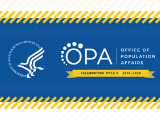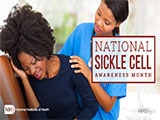The Best Valentine’s Day Gift: Saving a Heart
While we often think of chocolate hearts at this time of the year, there is another heart that should be on our minds – the hearts of the American people. Heart disease is the leading cause of death in America. And, unfortunately, heart disease is a leading cause of death during or following pregnancy. The good news is that you can take steps to improve your heart health. So on Valentine’s Day, we challenge all of you to look out for your heart.
One way to look out for your heart is to check your blood pressure. Many pharmacies, churches, and workplaces have blood pressure monitors where you can check your blood pressure for free. It just takes a few minutes, and it could change your life, and your family’s future. Check your blood pressure often, write down your readings along with the time of day and your recent activities, and see your healthcare provider. Your healthcare provider can talk with you about your goal blood pressure numbers. For most people with high blood pressure, blood pressure can be effectively controlled by small lifestyle modifications and/or simple medications. Also, make sure your family is taken care of by talking to them about their blood pressure numbers. Most often, women do not think to link pregnancy and heart conditions. When a patient goes to a clinic or hospital to do a stress test to diagnose heart disease, we often think of someone walking on a treadmill – uphill and fast – until exhaustion. However, there is a stress test that we do not talk about as much – that stress test is pregnancy.
The reality about pregnancy is the incredible cardio workout pregnant women undergo, which is why we say pregnancy is a “natural stress test.” During pregnancy, women’s hearts are working 30 to 50% harder at rest. When women’s hearts are already working extra hard in pregnancy, adding high blood pressure makes the heart work even harder and adds significant stress to the body. In the past decades, preeclampsia, a condition characterized by high blood pressure and abnormalities to the kidney or liver after 20 weeks of pregnancy, has skyrocketed. In fact, 1 in every 20 pregnant women develops preeclampsia. Preeclampsia is a leading cause of preterm birth and can also result in maternal death. Symptoms may include headache, changes in vision (e.g. seeing spots), stomach pain, shortness of breath, and changes to mental status. As scary as some of these symptoms are, it is even scarier that many women do not even know that they have preeclampsia until their blood pressure is extremely high at a prenatal visit.
One myth about high blood pressure that begins during pregnancy is that it disappears after pregnancy. That is the case for many women, but for many other women, their blood pressures remain elevated. If a woman has a history of high blood pressure in pregnancy, she has a much higher risk of cardiovascular disease in her lifetime. In fact, preeclampsia doubles a woman’s risk of heart disease and stroke, and quadruples her risk of chronic hypertension. Women with recurrent preeclampsia in multiple pregnancies have even higher risk. Starting pregnancy with healthy weight and maintaining healthy weight between and after pregnancies may reduce the risk of pregnancy-induced hypertension and development of cardiovascular disease later in life. Knowing these risk factors can help us all work together to ensure that we find ways to be proactive about heart health for every woman. We challenge healthcare providers, everyone in public health, communities, and insurance companies to think about ways to improve outcomes for hypertension before, during, and after pregnancy.
We encourage you to think about everyone you can have a heart-to-heart conversation with about women’s heart health, and continue the conversation throughout the year!
We are committed to improving every American’s cardiovascular health, especially the heart health of women. In addition to our recommendations for maintaining healthy weight, exercise, and nutrition as well as measuring your blood pressure and getting routine preventive care, we will be implementing many new programs to directly improve the heart health of every American.
For more information on women’s health including pregnancy and heart disease:
https://www.womenshealth.gov/
Empowering Research Participants with Information
Achieving Better Health for Mothers and Babies


